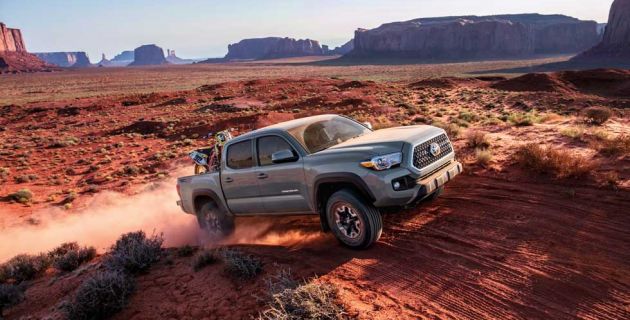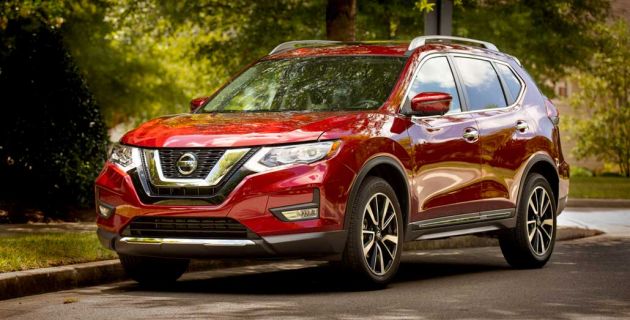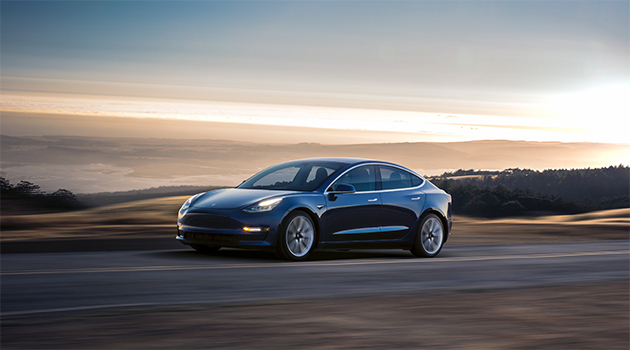Many described 2018 as a surprisingly solid year for automakers. But behind those rosy headlines, the details of 2018 come in shades of gray.
Some car manufacturers surely saw their fortunes rise across the past 12 months—but many saw them fall, and some had their fair share of both.
Auto sales in total were up slightly by year’s end—with the nation making north of 17 million vehicle purchases for the 4th year running—some in the industry were openly worried over how sustainable those numbers could be moving forward. Many were even preemptively predicting a coming sales slump.
That potential future still remains to be seen, but it’s possible to now at least glean some knowledge from the past, with most of the world’s top 10 automakers publicly declaring their final sales tally for last year’s month of December—and the year overall.
Keep reading to see how each automaker wrapped up in 2018.
General Motors
Last year was definitely rocky for the Flint-based powerhouse, and its final 2018 numbers further bore out that story.
Despite some 4th-quarter bright spots—including a 26.4% boost in Chevrolet Equinox sales; a 14.1% jump for the brand’s Traverse; and a 16.5% rise in sales for the Chevy Trax—the manufacturer suffered a number of loses over the same period.
Cadillac, Buick, and Chevrolet fell 2.7%, 13.7%, and 3.2% respectively in Q4. GM’s most popular model, the Chevy Silverado, also declined in the year’s final 3 months by a total of 3.6%.
Overall, the damage was bad enough to see GM sales dip by 1.6% in 2018, with a grand total of 2.954 million vehicles sold.
Ford
By all accounts, Ford fared even worse than its Michigan rival, finishing out the year down 3.5% overall, with 2.497 million vehicles sold.
Helping fuel the decline was an 8.8% sales dip in the month of December. The full year saw Ford’s passenger car sales drop dramatically, by a total of 27.8%.
SUV and truck and van sales didn’t fare much better, posting declines of 4.4% and 3.8% respectively across the year.
Ford was able to eke out some success last year from its Lincoln line, which finished out 2018 up by 8.5%.
Fiat Chrysler
The final member of the Big Three handily had the best 2018 of all, thanks to a red-hot year for Jeep and truck sales.
Jeep brand sales rose 9.9% in December alone, powered by a 44.5% boost in Wrangler purchases and 45.8% uptick for Jeep Compasses throughout the month.
The Dodge line also did some heavy lifting for Fiat Chrysler, growing by 16.7% overall in December, with its Ram brand specifically seeing a 36.7% rise.
All told, the company wrapped its 2018 up by 8.5%, with a collective 2.235 million vehicles sold.
Toyota

The Japanese automaker saw slight losses on the year, but was pretty much on the level overall.
Big losses in December on Toyota’s passenger cars—which saw sales fall by 15.1% during the month—were more or less mitigated by an 8% rise for pickup trucks, SUVs, and crossovers.
Specifically, the Tacoma finished the year well, with a 15.1% increase in sales, and the newly-designed RAV4 did even better, with sales up by 18.8% on the year.
Overall, Toyota managed to sell 2.426 million new cars in 2018, marking a dip of 0.3%.
Honda
Numbers were down overall for Honda last year, but it was one of the few manufacturers who had some luck with its passenger cars.
Sales of the vehicles were up by 4.2% in December, with its selection of pickups, SUVs, and crossovers also faring well in the month, with a 2.1% rise.
The Accord was the biggest December success story of all for the carmaker, with the sedan’s sales up by 29.4% in the final month of the year.
Still, it’s former high-selling Civic compact saw a 16% decrease in the month, and overall, Honda wound up at a 2.2% loss for 2018, selling a total of 1.604 million vehicles.
Volkswagen
The German automaker has yet to release its final calculations for 2018, but posted strong sales in December, also thanks to its passenger vehicles.
Its Jetta model led the way, with a 42% increase for the month, totaling 10,261 units sold. Passenger cars in general did well for the brand, posting an uptick of 6.8% for the month. Crossovers and SUVs also contributed to a profitable December, with a monthly sales increase of 4.8%.
Nissan

Nissan also had a solid showing in December, but even that strong finish wasn’t enough to save the automaker for the year.
Overall in 2018, the company sold 1.345 million vehicles, representing a 6.6% dip from 2017.
But the holidays were good to the manufacturer, which posted a 7.2% sales increase in December, bolstered by the all-time single-month record for sales of its Rouge SUV, which jumped by 5.9%—reaching 42,523 models sold—throughout the month.
Hyundai-Kia
The Korean carmaker saw its twin brands essentially hold steady in 2018.
While Hyundai sales jumped 3.4% in December, the company saw a 1.1% loss for the year overall, with 677,946 vehicles sold.
And Kia was even closer to breaking even last year. A strong showing in December—which saw sales increase by 10.2%—left the company selling just 5 more total cars last year than in 2017, with a final 2018 tally of 589,673.
Subaru
Last year was quite a record-breaker for the Japanese automaker, which set 2 new benchmarks in 2018.
August marked the company’s biggest single month ever for sales, while the year overall topped the annual sales record Subaru set in 2017.
The company kept rolling along with a strong December, which saw a 1.9% rise in sales, and a 5% overall sales jump in 2018, which finished out with 680,135 vehicles sold.
Tesla

The boutique company doesn’t report monthly sales figures, but it had a solid final quarter of 2018, with the 90,700 vehicles sold marking an 8% increase from the previous quarter.
All told, Tesla—which may have single-handedly saved the auto industry’s 2018—wound up with 245,240 vehicles sold throughout the year, representing a remarkable sales increase of 138%.
One can only wonder how Elon Musk will celebrate.